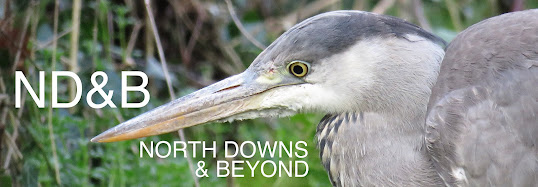Full circle
Any regular visitor to this blog will be familiar with the soul-searching, lack of confidence and uncertainty that clouds my relationship with birding. If push comes to shove, in my personal relationship with natural history, I am foremost a birdwatcher / birder / ornithologist (tick box as appropriate). I do not suffer such angst with plants, lepidoptera or the wide open book that is pan-listing. Why is that?
Part of the reason is youth. I began my love of birdwatching when I was in my mid-teens. It was a refuge from an uncertain world and one in which I seemed to fit in. My need to be accepted into this new found refuge was strong, so effort was made to be (a) competent and (b) known. My anonymity in 2015 covers up a successful campaign in the late 70s which saw me achieve this state of being. But that was just the start of the battle. Birding boomed around this time, becoming more popular, particularly in the twitching / identification arena, the place that I wanted to be. You had to play the game if you wanted to compete - it was a game that I half-heartedly got involved in.
1983 was the game changer. I had a choice between seeing Siouxsie and the Banshees at the Royal Albert Hall or a Northern Waterthrush on Scilly (or was it a Scarlet Tanger?) The Banshees won. There wasn't even a contest. I knew the game was up. But was it? My refuge then became Dungeness, where a new type of competition opened up, that of becoming a player down in Kent. It is no wonder that I failed, as with a 180 mile round trip I couldn't compete with the locals. But who was I really competing with? It was a self-constructed arena, a place that I took on myself and was bound to fail.
Where did I then retreat to? Moths. Plants. And because I was now a so-called adult, and was entering a place populated by people far, far more proficient than me, there was no pressure. So what if I ballsed-up an identification, it didn't matter, I wasn't up against any peers in this particular environment.
When I returned to birding (although I really hadn't ever left) it was to survey a much reduced playing field. The youngsters were largely missing, there were self-appointed experts who had been birding just a year or two and as for bird numbers... they had plummeted. From a personal perspective, my need to be welcomed back into this world was non-existent. I had exorcised the neediness from my ornithological blueprint. It had happened via the cleansing brought on by getting my thrills elsewhere.
There are birders who have admitted to me that they never question their allegiance to the cause, have never questioned why they do it and could never envisage a world without it. I used to envy that. I don't any more. Questioning what I do and why I do it has most probably opened me up to looking at other orders in the natural world that I never would have done otherwise. It is also why I find myself enjoying, once more, the simple pleasures of birdwatching, devoid of rarity and full of simple wonders. Full circle, if you like.


Comments
Also as you suggest, the youngsters are largely missing, technology seems to have lured them away from wandering around in the countryside doing simple things such as birdwatching. Perhaps the elitist attitude of many modern birdwatchers also deters some youngsters from getting involved. One well known local blogger, said to me recently that children should never be allowed near nature reserves!
One comment in response to Derek’s, which I hope will offer some encouragement. The land management Trust I’m involved with runs what’s called “Forest Schools”. At its heart it’s all about getting kids out into the natural world (http://www.forestschoolassociation.org/what-is-forest-school/). I’m sure they’re run all over the country and certainly give me some hope for the future.